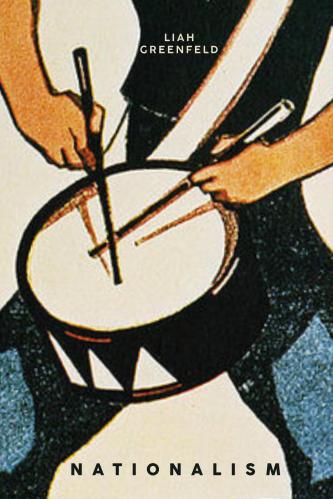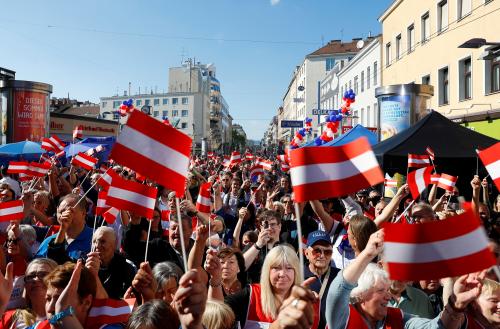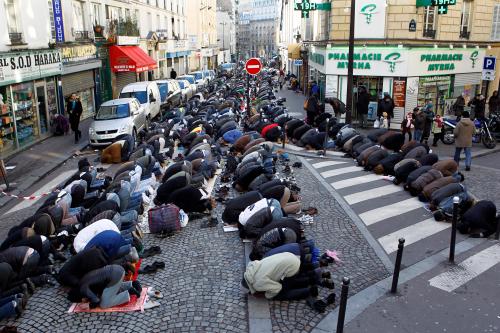This reaction essay is part of the Brookings project—”The One Percent Problem: Muslims in the West and the Rise of the New Populists.” We asked each author to reflect on how reading the other working papers helped them think differently about their own country of focus.
The various country cases discussed in this project show the extent to which right-wing populist parties have shaped and radicalized the discourse on Islam and Muslims in European societies. In contrast to the United States, with its de facto two-party system, the multiparty systems in Europe afford smaller and niche parties greater opportunities to engage in agenda setting and influencing larger parties. This happened with radical right and right-wing populist parties, which, once marginal, have grown their support and can now often act as agenda setters in national politics. This is especially salient in countries where such parties are part of governing coalitions, as has been the case in Denmark, Italy, Norway, Switzerland, and Austria. In contrast to Western Europe, in Hungary and Poland mainstream right parties have basically transformed themselves into radical right populist parties. But this radicalization process was not the result of niche party influence; rather, it was due to ideological shifts and voter seeking strategies of the governing parties themselves.
The Austrian case is instructive because the governing People’s Party (ÖVP) under the leadership of 33-year-old Sebastian Kurz has started co-opting the anti-Muslim (and anti-immigration) agenda of the Austrian Freedom Party (FPÖ). Here, we have a nominally centrist-right rather than a radical right-wing party (like the League in Italy), which plays a central role in the implementation of anti-Muslim positions. It is thus important to understand how these policy claims have been popularized and subsequently implemented through legislation and other measures such as shutting down mosques, banning facial covering in public, and issuing a headscarf ban in kindergartens.
Despite the many differences among the cases in the project, there are also crucial similarities. For instance, the Dutch case highlights the rather specific context of a consensus oriented political system in which right-wing anti-Muslim rhetoric has emerged. Anti-Muslim discourse in the Netherlands is based on the notion of defending liberal values against the perceived anti-liberal tendencies of Islam. This stands in stark contrast to situation in Hungary, where, among the far-right, the dominant notion centers on defending Europe’s traditional conservative Christian character. Typically, Western Europeans do not perceive their countries as especially Christian or, for that matter, Europe as a Christian continent, which is an important difference with Poland and Hungary. In Western Europe, the idea of a “Judeo-Christian tradition in Europe” has become a new way of excluding Muslims from the construction of a national identity.
As radical right parties have gained at the polls, they have also increased their cooperation. This trend has culminated in the emergence of populist a far-right party group in the European Parliament — Identity and Democracy (ID) — for which Europe’s Christian and anti-Muslim identity is a central pillar. These radical right parties have strategically shifted from their former often more explicitly anti-Semitic profile to an anti-Muslim one. Steve Bannon’s transnational operation The Movement is another recent example of such increased transnational cooperation. Understanding the structure of these networks and their connections to external actors like Russia is important for understanding the future development of Europe’s radical right parties.
From a comparative perspective, understanding the different influences of each national context is important. For example, a widely shared understanding of national identity in secular terms plays into producing a perception of Islam as “the other.” This is the case in France. In addition, socially liberal countries such as the Netherlands offer a completely different point of departure when dealing with Muslim minorities than do countries with a strong Catholic tradition. To take another example, the East-West divide within Germany can be viewed also from the perspective of varying degrees of secularism. Eastern Germany with its long history of anti-religious socialization during state-socialism may have influenced the way in which anti-Muslim mobilization thrives. The emergence of Patriotic Europeans Against the Islamization of the Occident (PEGIDA) as well as the relative strength of the Alternative for Germany (AfD) in Germany’s eastern states shows the need for further research into how this historical legacy is shaping voter preferences.
How center-right and center-left parties respond to the radical right’s othering of Muslims also plays an important role depending on whether such positions gain mainstream acceptance or rejected and delegitimized.
How center-right and center-left parties respond to the radical right’s othering of Muslims also plays an important role depending on whether such positions gain mainstream acceptance (e.g., the Christian Democrats in Austria) or rejected and delegitimized (e.g., Christian Democrats in Germany). While conservative parties in many cases fully co-opt the radical right agenda, social democrats on the center-left tend to not have a clear position on Islam as they seek to appeal to both more cosmopolitan urban voters and the working class.
Lastly, Muslim constituencies or, generally speaking, a more pro-diversity constituency that wants to include Muslims in their societies without demanding assimilation, also shapes the political system. In the Netherlands, Muslims were estranged from established political parties which led to two former Social Democratic politicians to set up their own political party, called DENK. In other cases such as Austria, Muslims are integrated into more mainstream parties.
Returning to the similarities between cases, an experience shared by many contributors to this project was methodological: it was more difficult to find party representatives willing to make themselves available for interviews on the specific issue of Muslims as compared to discussions on other issues. Hence, while publicly criticizing Islam and Muslims is more accepted, and more “mainstream” today than it was some years ago, party members still seem generally reluctant to discuss this development and its underlying reasons.
Still, our interviews with voters and supporters of the Austrian Freedom Party offered considerable insight. The extensive discussions and listening to their concerns afforded us an opportunity to trace their individual reasons for their skepticism toward Muslims. The conservatives suggested that concerns about Muslims are less the result of actual personal experiences but rather of impressions gained from public discourse, which is shaped to a large extent by the very parties hostile toward Islam. In addition, the interviews also revealed certain inconsistencies. This was the case, for example, when the same person who criticized Muslims for parading their religion because, according to the interviewee, religion ought to be a personal and private thing, then simultaneously complained that Christian symbols and traditions were being pushed out of public life to appease Muslims’ supposed desires (e.g., discussions about banning crucifixes or Christmas-related celebrations in public schools and kindergartens).
To be sure, we conducted a small number of interviews which were not representative of the entire population of Freedom Party supporters. However, our initial findings suggest that engaging supporters of populist parties instead of merely talking about them — as some mainstream political parties do — could be an opportunity for potentially mitigating some of the hostile views toward Islam while responding to these citizens’ concerns.
The Brookings Institution is committed to quality, independence, and impact.
We are supported by a diverse array of funders. In line with our values and policies, each Brookings publication represents the sole views of its author(s).






Commentary
How the center-right co-opts the far-right in Austria
A 'Muslims in the West' reaction essay
December 4, 2019